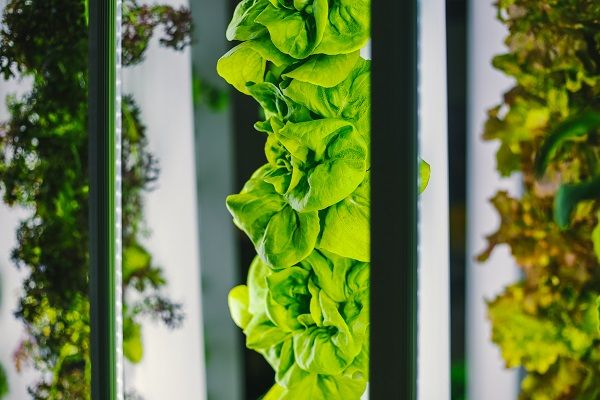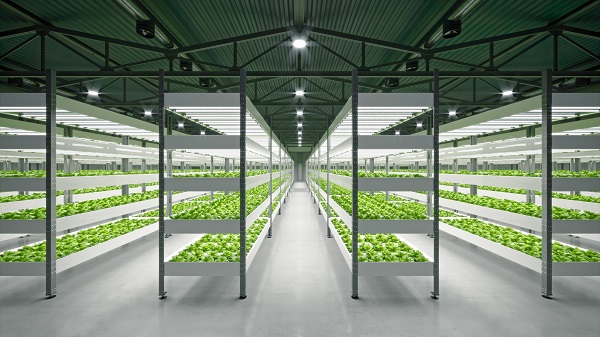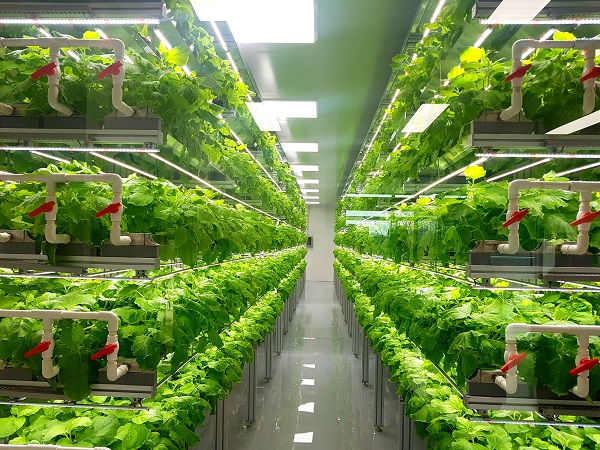
A Unique Form of Funding Could Provide Relief For Indoor Vertical Farms
High Operating Costs and Shrinking VC Are Big Challenges
Indoor vertical farming has seen significant growth. In fact, the industry is expected to exceed $35.3 billion by 2032, up from $5.6 billion in 2022. It is also expected to achieve a compound annual growth rate of 20.8% by 2032, according to Market.us.
There’s a lot driving the trend. Supply chain issues have disrupted distribution for traditional farms. The climate crisis will continue to reduce crop yields. We’re seeing increasing demand for year-round access to fresh fruits and vegetables. And a growing population means we need more food for more people.
The world needs indoor and vertical gardening — and investors have taken notice. Last year, indoor vertical farming investments surpassed $2.4 billion.
Whether that type of investment continues is uncertain. According to PitchBook’s Q1 2023 AgTech Report, indoor farms raised $75.8 million globally across 14 deals in the first three months of 2023, down 70% in deal value from the previous quarter and 91% year-over-year. So far this year, there’s less VC funding available to fill indoor farmers’ coffers. It doesn’t mean the money’s not available; it just may be harder to obtain.
Current challenges eat away at capital
Indoor farmers are facing some headwinds right now. Generally speaking, indoor and vertical growing facilities come with hefty operating costs. These organizations need significant capital to build out facilities and buy equipment.
Additionally, these facilities require a great deal of energy to operate, and that is particularly challenging as we saw electricity prices rise 10.2 percent over the last year, according to the U.S. Bureau of Labor Statistics. Organizations in the industry need cash reserves to cover these high costs.
Indoor vertical gardening also requires highly skilled, qualified people to run the operations. Organizations are competing for workers with a unique skill set in a small talent pool. They need the money to both recruit them and pay them their value.
For many organizations, the cost of building and running their operations is bleeding the equity well dry. They simply don’t have the capital for activities that enable them to scale, like expanding their facilities, hiring the right people, and marketing their product.
Overcoming these challenges requires thinking outside of the box in terms of funding.
Extending the cash runway with equipment leasing
With the potential for less money coming in from outside sources—and both the cost of inflation and energy not going anywhere in the near term—indoor and vertical farming companies will need to figure out ways to stretch the money they do have.
One way to do that is through equipment leasing, which is a flexible low-cost way to finance the type of equipment needed to build and outfit an indoor growing facility. CSC Leasing, for example, offers a non-dilutive equipment lease line up to $20 million that doesn’t have warrants or require restrictive covenants.
Also, what many business owners don’t know is that they may be eligible for a sale leaseback, where an equipment financier purchases pre-owned equipment and places it under lease. For example, CSC offers up to 100% reimbursement, providing organizations with a much-needed influx of cash.
Equipment leasing can enable organizations to:
- Conserve equity capital and bank facilities for mission-critical growth and other key operating initiatives, rather than spending it on depreciating assets.
- Plan more effectively and establish a safety net with predictable payments spread out over several years.
- Hold on to equity in the business—if the lessor offers non-dilutive equipment financing options.
- Gain the liquidity to respond quickly to overcome challenges, act on opportunities and avoid risks.
- Stay on the cutting edge with new technology and avoid the burden of costly obsolescence and equipment disposal.
Ultimately, equipment leasing can provide indoor and vertical gardening organizations with the cash they need to continue to grow the business—even as challenges persist.
 If you would like to learn more about CSC’s variety of solutions, contact Jess Hawthorne at jhawthorne@cscleasing.com or 804-239-7368.
If you would like to learn more about CSC’s variety of solutions, contact Jess Hawthorne at jhawthorne@cscleasing.com or 804-239-7368.

